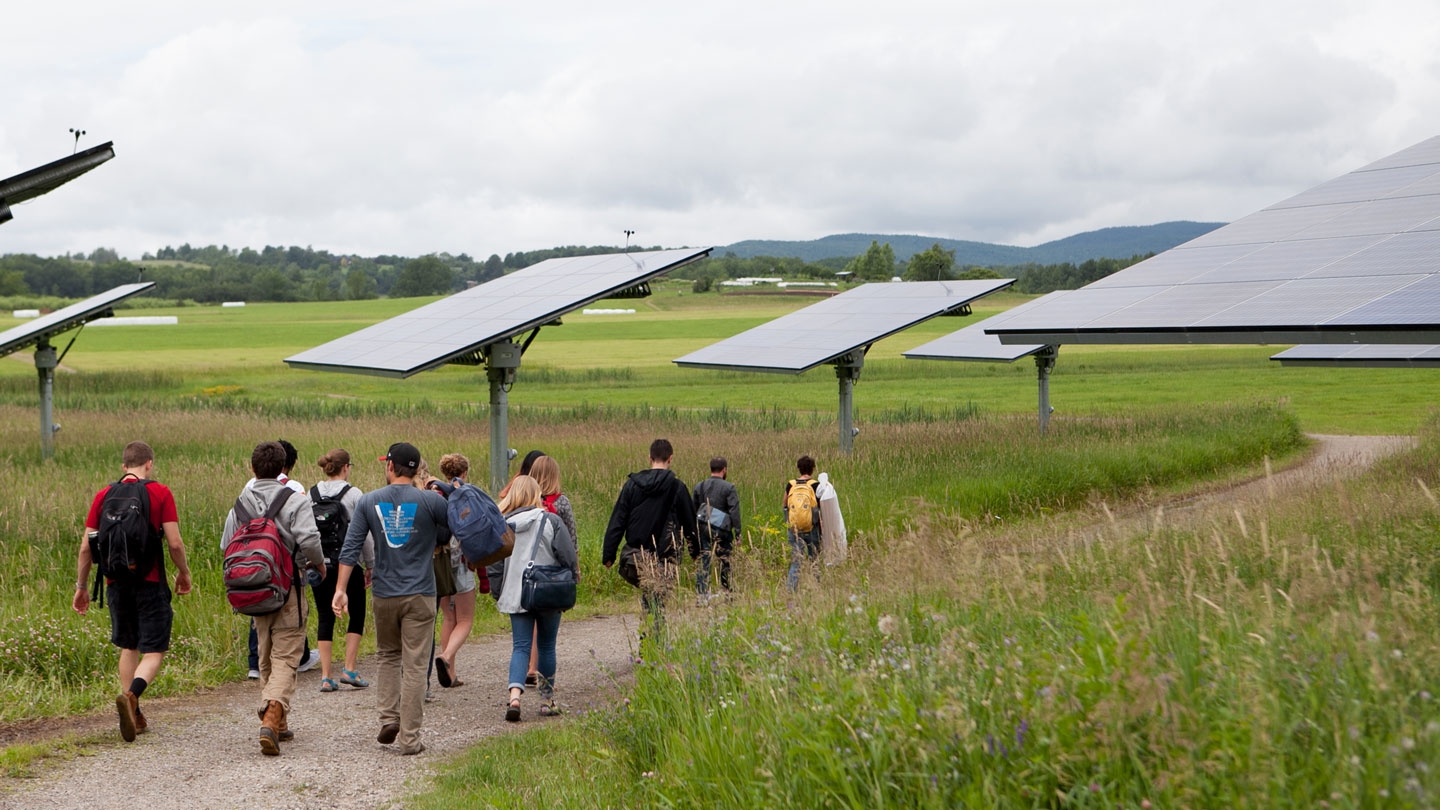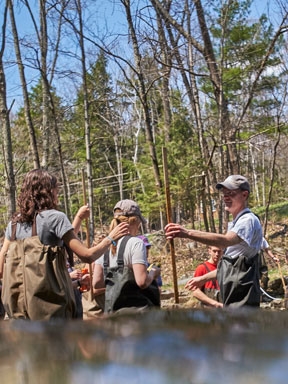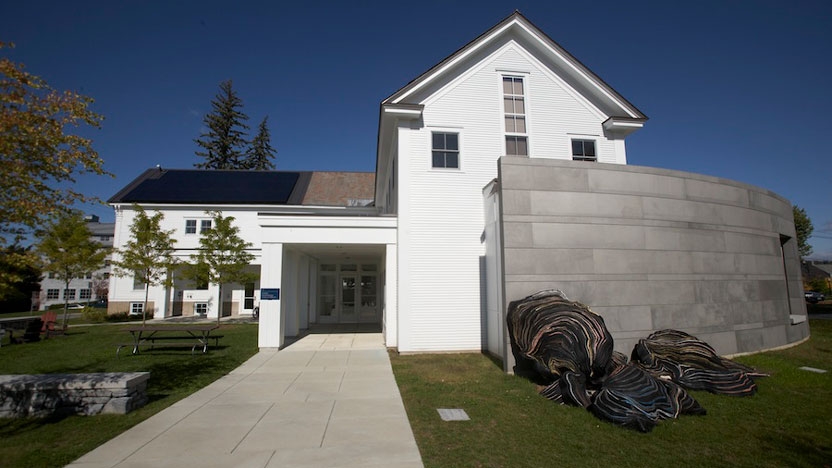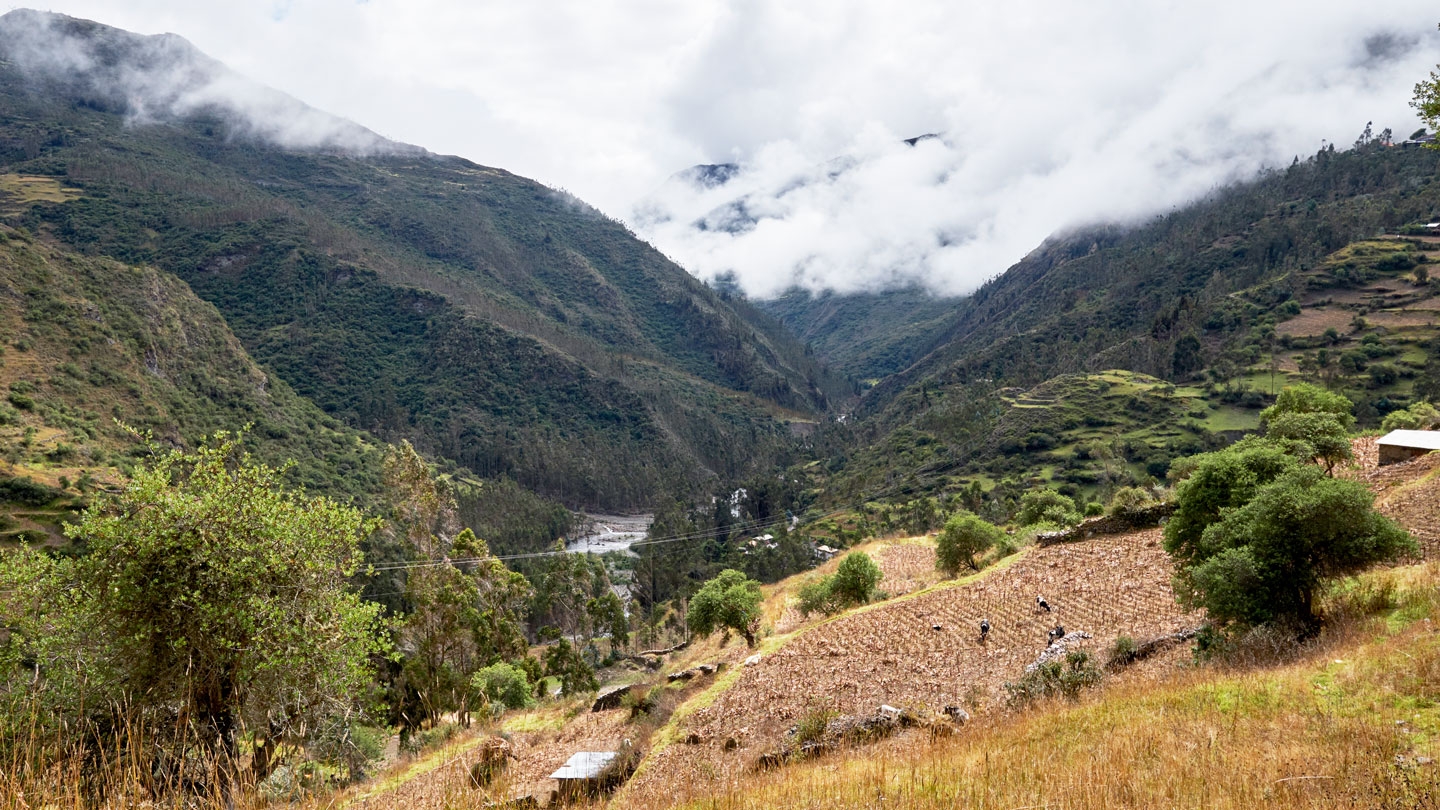
Arts
Combining environmental studies with the creative arts of dance, architecture studies, studio art, and theatre.
Environmental solutions cannot come from one type of knowledge or way of thinking, not just from politics or chemistry or economics or history.
They come instead from leaders, thinkers, and innovators who can draw skills and knowledge from multiple fields of knowledge and work with teams of thinkers from every corner of the campus and the globe.
Founded in 1965, the Middlebury College Environmental Studies Program is the oldest undergraduate ES program in the United States and is well equipped to help today’s students explore those solutions.

If you are concerned about environmental issues at home and around the world, and want to gain knowledge and develop skills to address those problems, the Middlebury Environmental Studies Program is a great place to start your exploration.
Students take courses from across the curriculum to develop a multifaceted understanding of the human relationship to the environment. Our 14 core faculty members and more than 40 affiliated faculty colleagues offer an interdisciplinary major and minor—and both foster in students a shared base of knowledge across the humanities, natural sciences, and social sciences. Our senior majors collaborate on a community-connected learning project in partnership with local environmental organizations in the Community Engaged Practicum.
Four introductory core courses—Natural Science and the Environment, Conservation and Environmental Policy, Contested Grounds, and a course in spatial analysis—prepare students to deepen their studies in one of 17 foci:
Each environmental studies major chooses one of 17 foci within these areas of study:

Arts
Combining environmental studies with the creative arts of dance, architecture studies, studio art, and theatre.

Humanities
Considering environmental studies in conjunction with history, literature, writing, and religion and philosophy.

Natural Sciences
Exploring environmental studies through the disciplines of conservation biology, chemistry, and earth and climate sciences.

Social Sciences
Examining environmental studies as it relates to conservation psychology, economics, justice, environmental policy, anthropology, and geography.

Located in the heart of campus, the LEED Platinum Franklin Environmental Center at Hillcrest serves as a hub for ideas and action. Home to Sustainability and Environmental Affairs and our Environmental Studies Program, the center provides support and coordination for campus initiatives throughout the College.

Two-thirds of all environmental studies majors also study off campus for one semester at schools and programs across Europe, Asia, Africa, Latin America, and Australia.
Off-Campus OptionsES majors and minors graduate with in-depth knowledge of the American story of human-environmental interaction and understand that there are other narratives, often vastly different, from other parts of the world. With over 900 graduates, our alums work in environmental fields as entrepreneurs, scientists, policymakers, scholars, consultants, teachers, volunteers, activists, and founders of nonprofits.
Visit Careers with Social Impact for information and news about environmental jobs and internship opportunities.